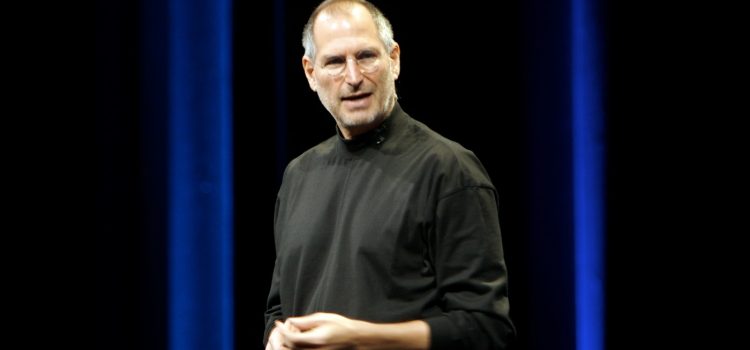

This article is an excerpt from the Shortform book guide to "Steve Jobs" by Walter Isaacson. Shortform has the world's best summaries and analyses of books you should be reading.
Like this article? Sign up for a free trial here.
What was Steve Jobs’s personality like? How did he treat his employees at Apple?
Steve Jobs was one of the leading figures in electronics when he was alive. His biography by Walter Isaacson, Steve Jobs, claims this is because he was a strict and intense leader who strived for perfection.
Learn more about Jobs’s determined personality below.
Steve Jobs vs. Reality
Despite Steve Jobs’s personality being intense and ideal, he was also adept at denial. Jobs’s single-minded passion, his binary thinking, and his need to control everything around him contributed to his willingness to ignore any situation that didn’t conform to his predetermined views. Though sometimes Jobs’s willful blindness worked to his advantage, Isaacson makes the case that it often didn’t and actively harmed the people around him—such as when his arbitrary deadlines forced employees to work around the clock or when he continually denied his paternity of his first daughter, Lisa Brennan.
(Shortform note: In Poor Charlie’s Almanack, investor Charlie Munger points out that even in the business world, psychological denial is an anti-pain response that nevertheless leads to poor decision-making. Taken to extremes, some people use denial as a means to keep reality itself at a distance.)
Early on, those who worked closely with Jobs dubbed this his “reality distortion field.” Jobs would insist on deadlines, redesigns, or product features that his teams working on a project would deem impossible. Jobs had an uncanny knack for convincing those around him to forge ahead and accomplish what he told them. Isaacson says that more often than not, this strategy worked, forcing his colleagues to innovate in ways they hadn’t imagined.
Because Jobs’ strategy of redefining reality worked most of the time, Isaacson argues that Jobs never learned to deal with reality on its own terms—until he met a reality that he couldn’t bully to his liking.
When Jobs was first diagnosed with cancer, he denied it, and instead of following his doctors’ advice, he tried alternative methods to will the cancer away. Isaacson claims it’s possible that if Jobs had yielded to his cancer’s reality, it could have been dealt with promptly before it spread through the rest of his body.
Life After Steve Jobs
Despite his controversial personality, Steve Jobs succeeded in leaving an impact that would last beyond the end of his life. In 2019, Simon Sinek characterized Apple as a company that plays The Infinite Game—an enduring business that looks to the long-term, ever-changing future. Under the guidance of Tim Cook, Jobs’s successor, Apple became the first company valued at over $2 trillion, while introducing innovations such as wireless AirPods and the Apple Watch.
Jobs created a company that successfully avoided what economics professor Clayton Christensen called The Innovator’s Dilemma. Instead of floundering when disruptive technologies changed the landscape of the computer industry, Apple was more often than not the cause of those very disruptions. Steve Jobs practiced what W. Chan Kim and Renée Mauborgne describe as the Blue Ocean Strategy— keeping an eye on technological trends and leaping forward into markets where there wasn’t any competition.
Other biographers in addition to Isaacson have explored Jobs’s business and personal lives. In How to Think Like Steve Jobs, Daniel Smith examines Jobs’s ability to intuit what users would want before they knew it themselves, comparing him to figures such as Thomas Edison and Sony’s Akio Morita. In The Steve Jobs Way, Apple vice president Jay Elliot offers insight into Jobs’s managerial style, while in Steve Jobs: The Man Who Thought Different, Karen Blumenthal focuses on Jobs’s personal qualities.
In iCon, an unauthorized biography published in 2005, Jeffrey Young and William Simon are critical of Jobs’s role as an innovator, arguing that he was simply in the right place at the right time. In The Bite in the Apple, Jobs’s girlfriend Chrisann Brennan portrays him as a charismatic figure to the outside world while distant and cruel to those closest to him. In Small Fry, a memoir by Lisa Brennan-Jobs, she describes him as a father who was both thoughtful and cold, but with whom she was able to reconcile in the end.

———End of Preview———
Like what you just read? Read the rest of the world's best book summary and analysis of Walter Isaacson's "Steve Jobs" at Shortform.
Here's what you'll find in our full Steve Jobs summary:
- A no-fluff look into the life of Steve Jobs
- How Jobs changed the technology landscape
- What it was like to work with and for Steve Jobs







Very useful article. Thank you so much for this